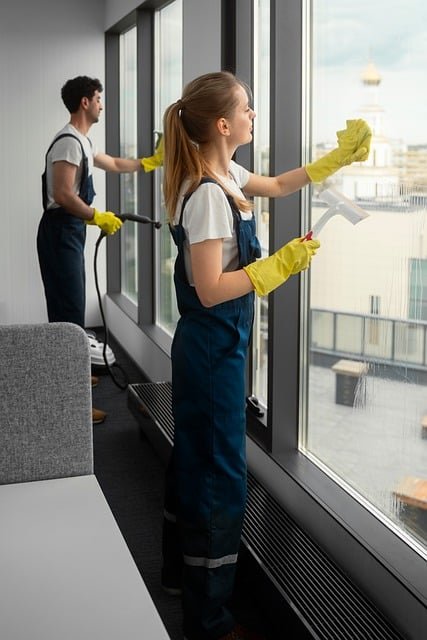Cleaning Jobs: Your Path to Stable Employment and Flexible Hours
The cleaning industry offers numerous employment opportunities across various settings, from residential homes to commercial buildings and specialized facilities. These positions typically require minimal formal education while providing stable income and flexible scheduling options. Cleaning jobs can serve as both entry-level positions and long-term career paths with advancement potential. As essential workers, cleaning professionals fulfill a constant societal need for sanitization and maintenance services, creating consistent employment prospects in nearly every community.

What Makes Cleaning Jobs an Attractive Career Option?
Cleaning jobs provide several advantages that make them appealing career choices for many individuals. One of the primary benefits is job stability. Unlike some industries that experience significant fluctuations based on economic conditions, cleaning services remain consistently in demand. Homes, businesses, healthcare facilities, and educational institutions require regular maintenance regardless of economic cycles, creating reliable employment opportunities.
Flexibility represents another significant advantage of cleaning careers. Many cleaning positions offer variable schedules, including part-time, full-time, evening, and weekend options. This flexibility makes cleaning jobs particularly suitable for students, parents with childcare responsibilities, individuals seeking supplemental income, or those who prefer non-traditional working hours.
The accessibility of cleaning positions also contributes to their attractiveness. Most entry-level cleaning jobs require minimal formal education requirements, making them accessible to those without specialized degrees or certifications. While specialized cleaning roles may require specific training, the initial barrier to entry remains relatively low compared to many other professions.
How Easy Is It to Start a Career in Cleaning?
Starting a career in cleaning is generally straightforward, particularly at the entry level. Most cleaning positions require a high school diploma or equivalent, though some employers may hire individuals without formal educational credentials if they demonstrate reliability and willingness to learn. Physical stamina is important, as cleaning work often involves standing for extended periods, lifting moderate weights, and performing repetitive motions.
Many cleaning companies provide on-the-job training, teaching new employees about proper cleaning techniques, safety protocols, and equipment operation. This training approach allows newcomers to begin earning while developing essential skills. Some employers may require background checks, especially for positions involving access to private residences or sensitive facilities like schools or healthcare centers.
The hiring process for cleaning positions typically involves a basic application, interview, and sometimes reference checks. Some specialized cleaning roles or positions with larger organizations may have more extensive requirements, but the overall process remains relatively accessible compared to many other fields.
What Types of Cleaning Jobs Are Available?
The cleaning industry encompasses a diverse range of specializations and work environments, providing various career paths based on individual preferences and skills:
Residential cleaning involves maintaining private homes, apartments, and condominiums. These positions may operate through cleaning service companies or independent arrangements. Residential cleaners typically handle general housekeeping tasks including vacuuming, dusting, bathroom sanitization, and kitchen cleaning. These roles often offer flexible scheduling and can include recurring appointments with regular clients.
Commercial cleaning focuses on maintaining business environments such as office buildings, retail spaces, and restaurants. These positions frequently involve evening or overnight shifts when facilities are closed to the public. Commercial cleaners manage larger spaces than residential cleaners and may use more specialized equipment for tasks like floor buffing or industrial vacuuming.
Industrial cleaning addresses specialized maintenance needs in manufacturing plants, warehouses, and production facilities. This work may involve handling specific chemicals, operating specialized equipment, and adhering to strict safety protocols. Industrial cleaners often receive higher compensation due to the specialized nature of their work and potential exposure to more challenging environments.
Healthcare facility cleaning represents a specialized segment requiring strict adherence to infection control protocols. Cleaners in hospitals, clinics, and long-term care facilities follow detailed procedures to maintain sterile environments and prevent disease transmission. These positions typically require specific training in healthcare sanitation standards and may offer premium compensation due to their critical nature.
Advancement Opportunities in Cleaning Careers
While cleaning jobs offer accessible entry points, they also provide paths for career advancement and increased earning potential. With experience and demonstrated reliability, cleaning professionals can progress to supervisory roles overseeing teams and coordinating cleaning operations. These leadership positions typically offer higher wages and may include administrative responsibilities like scheduling, quality control, and training new staff.
Specialized cleaning certifications can further enhance career prospects. Organizations like the International Sanitary Supply Association (ISSA) and the Institute of Inspection, Cleaning and Restoration Certification (IICRC) offer professional credentials in specialized cleaning techniques. These certifications verify expertise in areas like carpet care, hard surface maintenance, or infection control, potentially qualifying cleaners for higher-paying specialized positions.
Some cleaning professionals leverage their experience to establish independent cleaning businesses. Entrepreneurship allows for greater control over working conditions and potential for increased income, though it also requires business management skills and client development efforts.
Income Potential and Working Conditions
Cleaning job compensation varies significantly based on factors including location, specialization, experience level, and employer type. Entry-level residential and commercial cleaning positions typically start near minimum wage, while specialized cleaning roles may offer considerably higher compensation. Supervisory positions and those requiring technical certifications generally command higher pay rates.
Working conditions in cleaning jobs depend largely on the specific environment and employer. Most positions involve physical activity, including standing, walking, bending, and lifting. Some cleaning work occurs during standard business hours, while other positions—particularly in commercial settings—may require evening, overnight, or weekend shifts.
This article provides general information about cleaning careers and does not constitute specific job listings or employment opportunities. The cleaning industry experiences regular turnover and typically maintains ongoing hiring needs, but individuals seeking employment should research current openings in their local area through job boards, company websites, or employment agencies. Job availability, requirements, and compensation will vary by location and specific employer.






